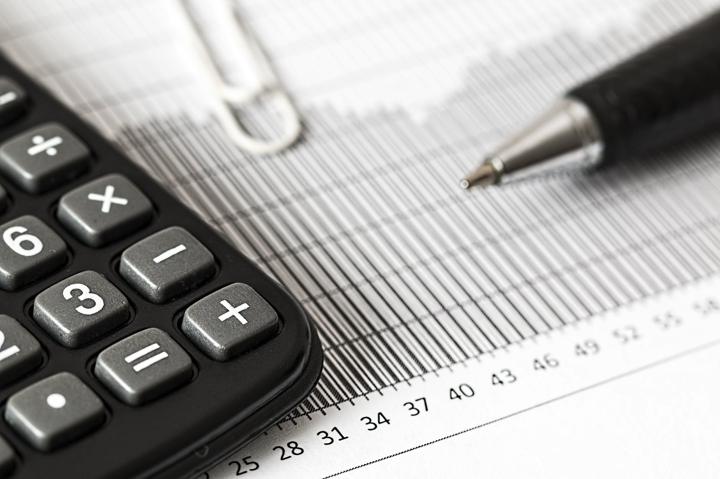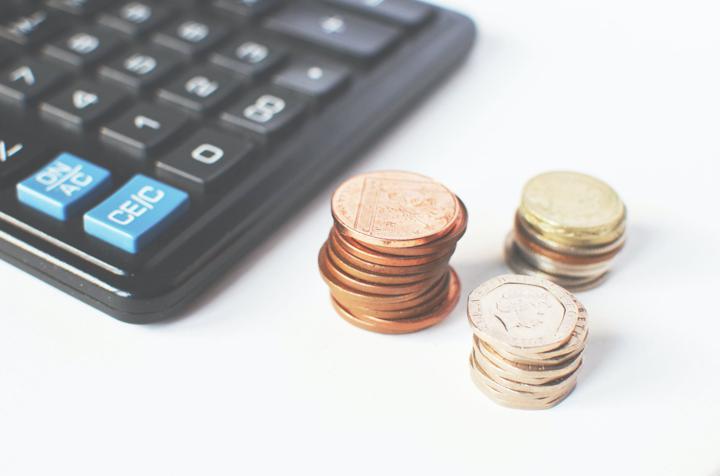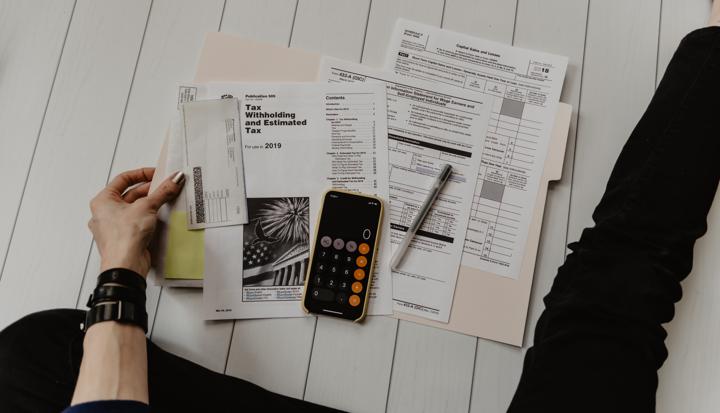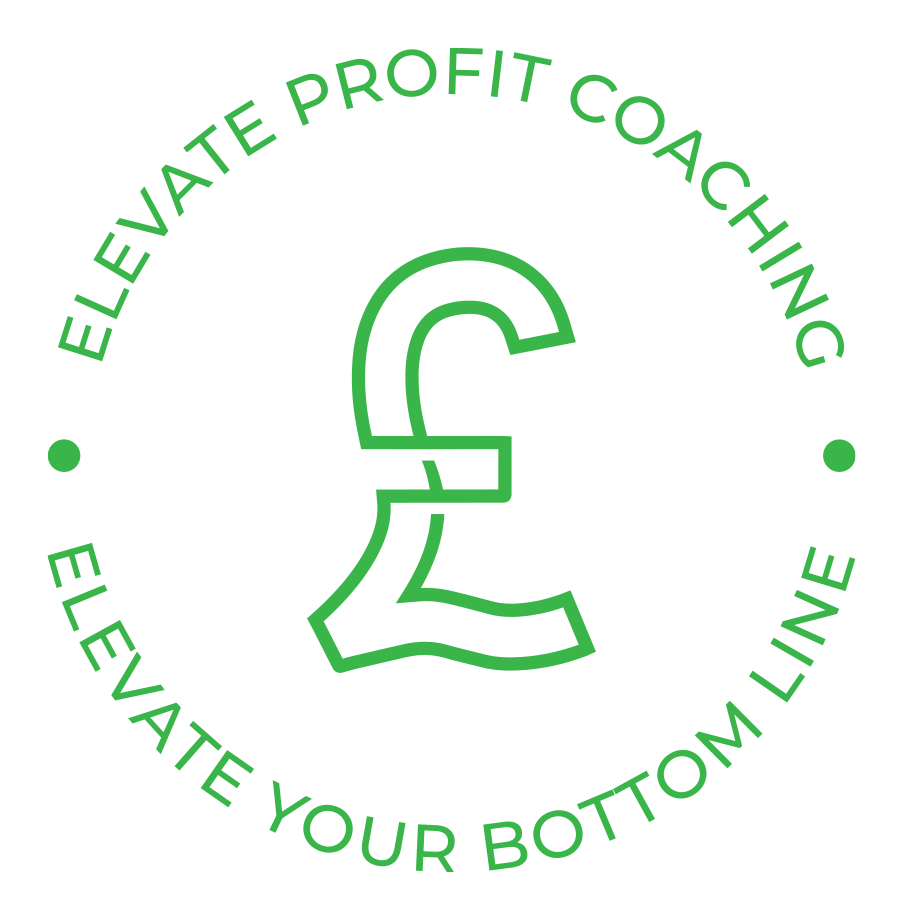Value Added Tax, Sales Tax, Goods Tax, 'The Dreaded'... whatever you call it, V.A.T is a big part of any V.A.T registered business. If you are close to the threshold, you may be tossing up your options in terms of registering, so we're going to try and help you shed some light on the question.
It's actually one of the more complex taxes out there when you get into the details, so there's not necessarily a single right answer for you. It's something you should discuss with a trusted accountant or adviser, but lets jump into the details about going V.A.T registered.

WHAT IS V.A.T?
V.A.T stands for Value Added Tax; it is a form of consumption tax which is added to the purchase of most goods and services. The majority of the time V.A.T adds 20% to the price of the goods or services you are purchasing, which sits roughly in the middle when compared to other European countries. However, there a few examples of specific goods and services and that don't quite work like this which you can read here: exempt list.
Once a business reach certain requirements - or decides they want to register for V.A.T voluntarily - they will have to register to collect and forward VAT on to HMRC.
WHO PAYS V.A.T?
This is a tax that is ultimately paid by the consumer. If your business registers for V.A.T, even though it will be you that pays this money to HMRC, the customer has already paid this amount at the point of sale. So effectively you are acting as an unpaid tax collector for HMRC.
When the customer pays your invoice, including any V.A.T, that money was never yours. You are simply holding it for HMRC.

DO YOU HAVE TO REGISTER TO PAY V.A.T?
If you want to charge your customer V.A.T on your invoices, you must register for V.A.T. You cannot charge it without being registered.
Businesses only need to register for V.A.T when they reach a total turnover of £85,000 per year, which is a great problem to have. At this point you don't have a choice and you are obliged to register.
Note: it's considered fraudulent to split your business into two and operate them separately if they operate for largely the same purpose, or to ask your customer to pay money somewhere other than the business itself in order to stay under that £85,000 threshold.

CAN I CLAIM V.A.T BACK?
You are required to pass the V.A.T you have charged on to HMRC, but your 'bill' is rarely 100% of the V.A.T you have invoiced for. Your V.A.T balance can be offset by the amount of V.A.T you have already paid as part of the purchase of goods or services wholly for use in the operation of your business.
There are exceptions for what can and can't be used to reduce your V.A.T liabilities. There is a good article here which outlines specifics.
HOW IS YOUR V.A.T BILL CALCULATED?
There are multiple methods of calculating and paying V.A.T which you can read about in this article to see what might work for you.
But we are going to focus on the most common method which is the Standard V.A.T accounting method. In this method, rather than sending HMRC small V.A.T payments after every sale, you total the amount of V.A.T collected over a 3-month period, and take away and eligible V.A.T paid on purchases over that same period, which gives you your V.A.T liability.
It's a simple formula:
V.A.T Charged - V.A.T Paid = V.A.T Owed

PROS OF BEING V.A.T REGISTERED?
Now to what we all came here for, what are the benefits and negatives or being V.A.T registered? It may sound daunting to add an extra fee on top of your services, but ultimately there are so many benefits of going V.A.T registered that many businesses wonder why they ever worried:
The first thing to note, is if you do commercial work for other businesses, this won't have any effect on the price they pay as they can also claim the V.A.T you charge back, but you are still able to claim back the V.A.T on things you buy, resulting on cheaper goods without it impacting sales. So if this applies to you and you are largely commercial, you should always get yourself registered. But speak to your accountant first.
However, most of us do private, non-commercial work, so this won't apply. In these cases, there are still positives: V.A.T businesses instantly have a better reputation. It helps you appear as a bigger business to your client, therefore helping you to gain their trust quicker than if you weren't V.A.T registered. And trust is everything when trying to win a sale!
Also, once registered, you are perfectly geared up for growth. There is no longer a threshold to worry about staying under and you can grow as much as you possibly can from there. One less headache.
An additional benefit that people sometimes neglect, is that your records need to be much better. This means you have better information on your business to hand at all times. Better information can help with better decisions, so it's a huge positive to take into account. Good information is key to you taking home more money, and this is something we can help you with.
There is also something called 'Retrospective Gain' which means that after going V.A.T registered, you can claim back V.A.T on old goods providing you still own them and have kept the V.A.T receipt.
Pros Summary:
- V.A.T businesses have a better reputation.
- Better information for your business with good records required.
- Your business is ready for growth without a limit.
- Retrospective gain. Provided you still own the items, you can claim V.A.T back on items that you've purchased before becoming registered. But you will need the V.A.T invoice.
CONS OF BEING V.A.T REGISTERED?
We shouldn't pretend that going V.A.T registered is all positives. Instinctively we know that this is likely going to pass costs on to your clients. Let's explore what the setbacks of V.A.T registration may be.
The first and most obvious one is that if your customers aren't V.A.T registered themselves, then they aren't able to claim it back and will simply absorb the costs - making your services more expensive.
Additionally, if you generate more V.A.T from your sales than you pay on purchases - which you want to be the case in business! - you may find yourself with a big V.A.T bill that you are not prepared for. This shouldn't be a concern with good preparation, you can book in a call with us if you'd like us to help you be ready for any V.A.T bills.
There's also the rare situation that your suppliers won't be V.A.T registered which means you actually won't be able to claim on their goods or services. It's rare, but it's something worth checking.
However, the main concern is often the extra work that is involved with becoming V.A.T registered. Your books and records need to very accurate when you submit V.A.T returns to HMRC and this does not happen automatically. Things like Xero or QuickBooks can help, but there is going to be extra work required as a business owner whichever way you look it. A good accountant or bookkeeper will help!
Cons Summary:
- Passes extra 'unnecessary' costs to your customers.
- If you generate more V.A.T from sales than you pay on purchases, you will have a large bill to pay.
- If suppliers aren't V.A.T registered, you cannot claim V.A.T back.
- Huge amounts of extra admin and accounting involved in being registered.
SHOULD YOU GO V.A.T REGISTERED?
The first and most important thing to emphasise, is how important it is to find a good accountant. If you already have one, they will easily be able to advise on the best thing for you and your business. So if you have one, great. If you don't, get one!
Ultimately it's a decision you need to make for yourself, ideally with the help of an accountant or adviser. But you may not have a choice - if you are going over the threshold, then we have a non-issue. You will be required to register, no ifs or buts.
However, hovering close to the threshold and doing what you can to stay under it can create huge headaches and requires you to constantly reinvent how you operate your business. It may be an idea just the blow through the threshold and forget all the headaches for the rest of your business life.
The pros of going V.A.T registered are significant. Looking instantly more reliable to a client is everything when trying to win a sale. If going V.A.T registered makes you more trustworthy, it may be worth it just in itself!

OUR CONCLUSION
Ultimately, we can't say whether you should or shouldn't without knowing the details. It will depend on your situation and your accountant is absolutely the one to talk to about this first - they will know your numbers inside out and will be able to provide the best advice.
However, from our experience, the pros outweigh the cons. Once you've registered, there is no more limit to worry about. You can grow and grow and grow without a concern for any threshold.
Don't let V.A.T limit you!
The admin and accounting for V.A.T can be complicated for you to tackle on your own, but if you decided to go V.A.T registered, it's easier to be prepared for your V.A.T bills than you might think. If you have recently gone V.A.T registered, or have historically struggled come tax time, our cash-flow method might be exactly what you are looking for. Book a FREE consultation and we'll see if we can help.
